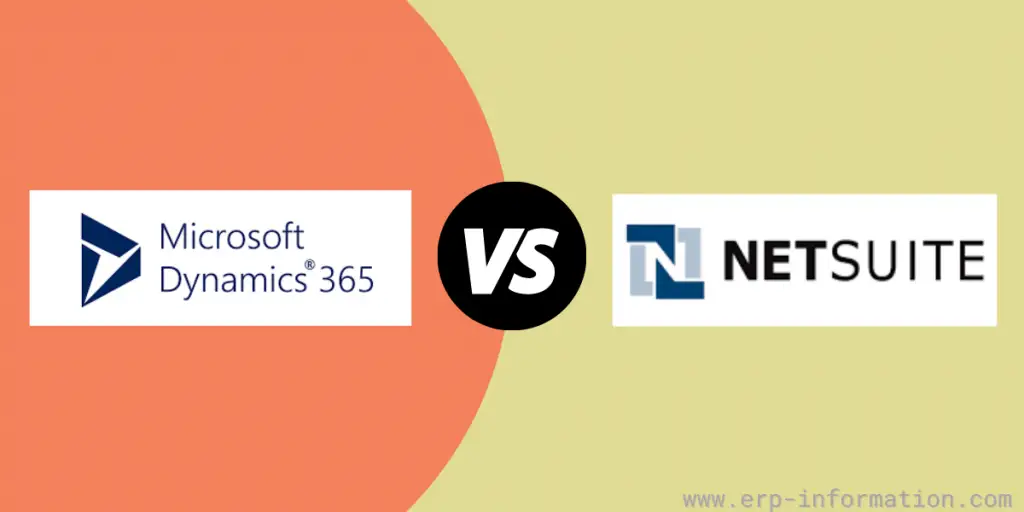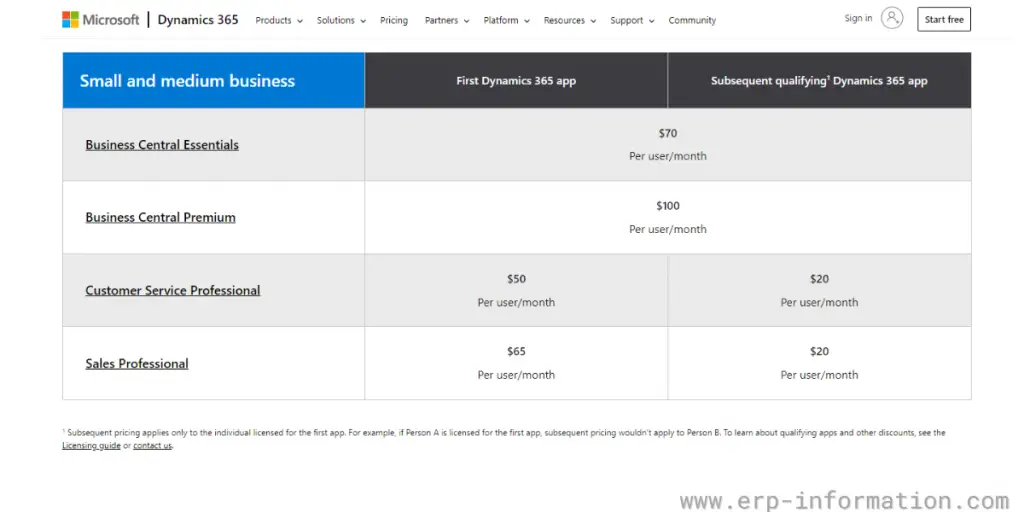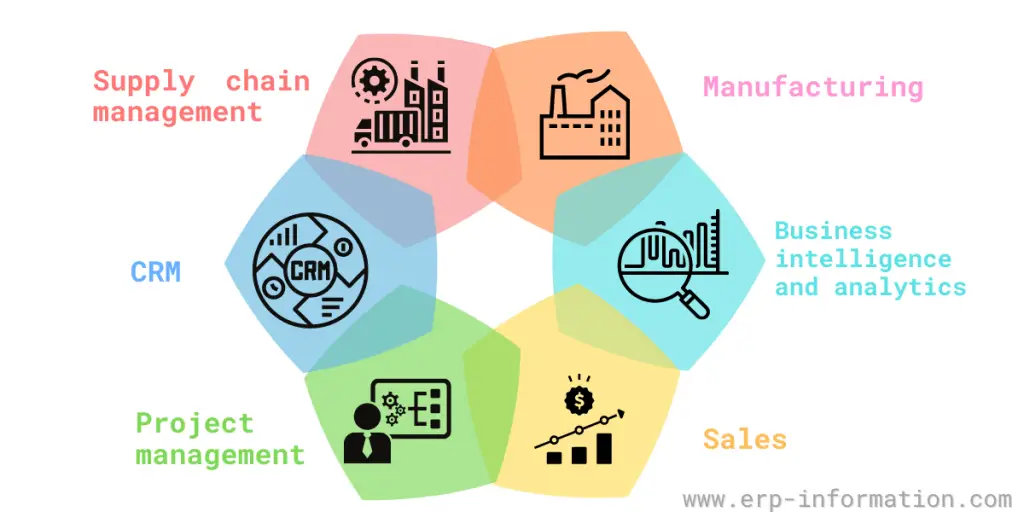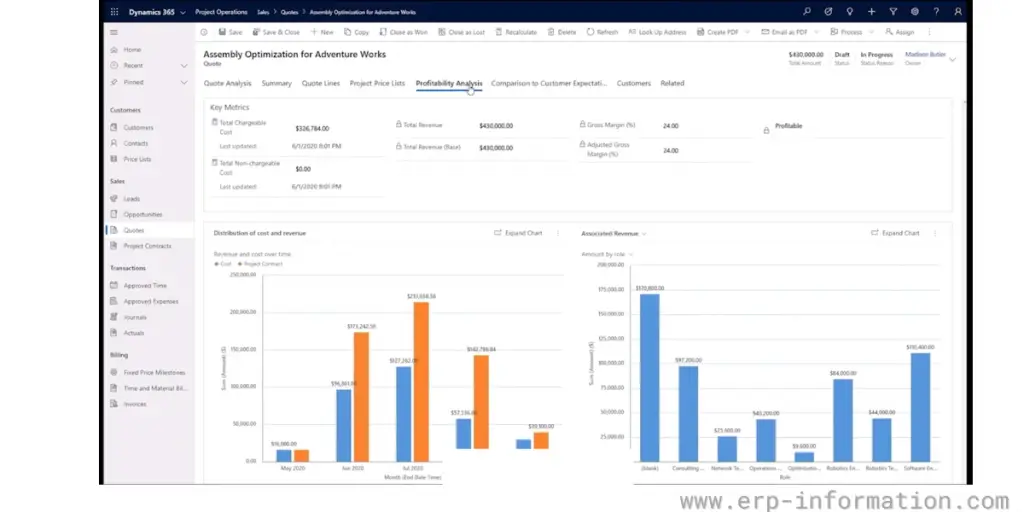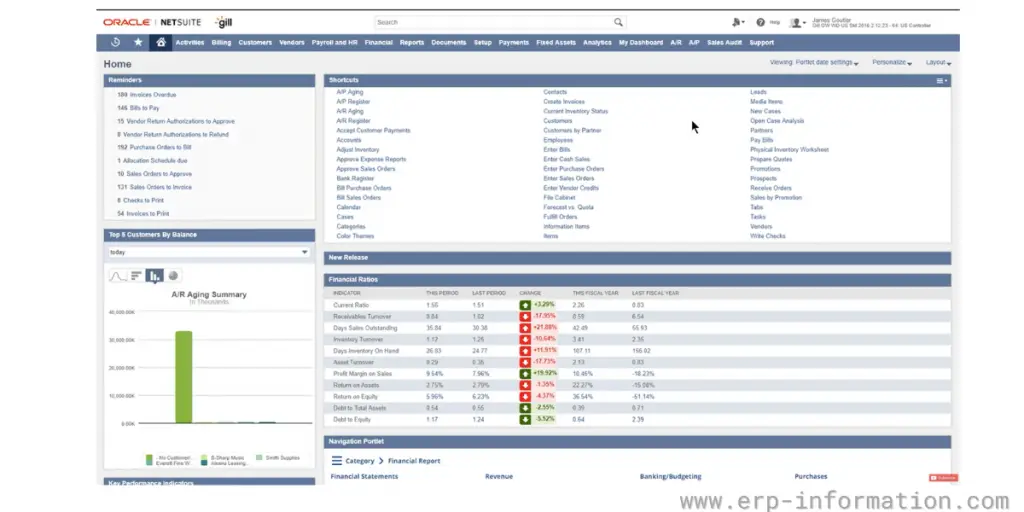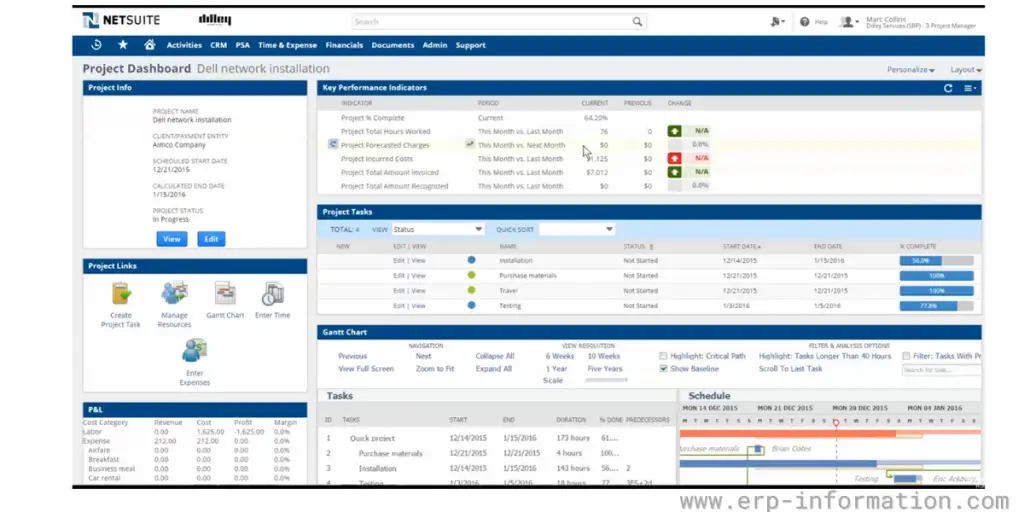You need a new ERP system but don’t know which one to choose. Microsoft Dynamics and NetSuite are two of the most popular ERP systems. However, they both have pros and cons, so how do you decide which is right for you?
This blog post explains Microsoft Dynamics vs NetSuite so you can decide which ERP system is right for your business.
Microsoft Dynamics vs NetSuite
Microsoft Dynamics is a business management software solution that helps organizations automate their business processes and improve decision-making.
Dynamics is a comprehensive ERP system covering financial, supply chain, and operations management. It’s available in both on-premises and cloud-based versions.
NetSuite is a cloud-based ERP system that offers financials, inventory management, and e-commerce capabilities. It’s a popular choice for businesses because it is easy to use and has a low total cost of ownership. NetSuite is also scalable so that it can grow with your business.
Let’s compare them.
Pricing
Microsoft Dynamics and NetSuite both offer subscription-based pricing models. However, Dynamics is typically more expensive than NetSuite. Therefore, NetSuite may be the better option if the price is a significant consideration.
Microsoft Dynamics and NetSuite both offer a free trial.
Dynamics 365 Pricing Details
Microsoft dynamics provides transparent and detailed pricing plans. Pricing plans are based on the type of Dynamics that businesses want to buy, such as sales, marketing, etc.
The pricing is again divided into two parts, first Dynamics 365 app, and the subsequent qualifying Dynamics 365 app. Details are as follows.
| Plans | First Dynamics 365 app | Subsequent qualifying Dynamics 365 app |
| 1. Customer data platform | ||
| * Customer Insights | $1500 per tenant per month | From $1000 per tenant per month |
| * Customer Voice | From $200, 2,000 survey responses per tenant/month. | |
| 2. Sales | ||
| * Sales Professional | $65 per user per month | $20 per user per month |
| * Sales Enterprise | $95 per user per month | $20 per user per month |
| * Sales Premium | $135 per user per month | |
| * Microsoft Relationship Sales | $162 per user per month | |
| * Microsoft Viva Sales | $40 per user per month | |
| 3. Service | ||
| * Customer Service Professional | $50 per user per month | $20 per user per month |
| * Enterprise | $95 per user per month | $20 per user per month |
| * Field Service | $95 per user per month | $20 per user per month |
| * Remote Assist | $65 per user per month | $20 per user per month |
| 4. Marketing | ||
| * Marketing | $1500 per tenant per month | $750 per tenant per month |
| 5. Commerce | $180 per user per month | $30 per user per month |
| * Fraud Protection | $1000 per tenant per month | |
| 6. Supply chain | ||
| * Supply Chain Management | $180 per user per month | $30 per user per month |
| * Guides | $65 per user per month | |
| * Intelligent Order Management | From $300per 1,000 orders lines/month | |
| 7. HR | ||
| * Human Resources | $120 per user per month | $30 per user per month |
| 8. Finance | ||
| * Finance | $180 per user per month | $30 per user per month |
| 9. Project management | ||
| * Project Operations | $120 per user per month | $30 per user per month |
| 10. Small and medium business | ||
| * Business Central Essentials | $70 per user per month | |
| * Business Central Premium | $100 per user per month | |
| * Customer Service Professional | $50 per user per month | $20 per user per month |
| * Sales Professional | $65 per user per month | $20 per user per month |
NetSuite Subscription Details:
NetSuite‘s subscription fees are not transparent to the public. To get pricing details, you need to speak with a salesperson to reveal the price. They may provide a significant discount for NetSuite as a conditional new customer.
Pricing will be based on your specific requirements. The Netsuite team will generate a personalized estimate for you. Factors such as the number of monthly system users, type of modules, and add-ons needed by your organization will be considered to finalize the cost.
Netsuite offers four edition types.
- Netsuite financials – Starts from $999 per month.
- Netsuite limited/ starter edition – It is suitable for small businesses with one legal entity and 10 full-user licenses.
- Netsuite mid-market edition – Suitable for businesses with two or more legal entities and more than 10 full-users
- Netsuite enterprise edition – Suitable for businesses with more than 1000 full users.
Customer support
According to most customers, NetSuite has got better customer support, whereas Microsoft Dynamics has not been so good at providing customer support.
NetSuite
Customer support:
- Live chat: available 24/7
- Phone support: available during business hours
- Online training videos: in-person, live online, and webinars available on the NetSuite website
Microsoft 365
Customer support:
- Live chat: available during business hours
- Phone support: available during business hours
- Online training videos: available on the Microsoft website
Deployment and scalability
Both Microsoft Dynamics and NetSuite offer on-premises and cloud-based deployment options.
However, Oracle NetSuite is a pure cloud solution, so it’s more scalable than Dynamics. So if you’re looking for an ERP system to grow your business, NetSuite is the better choice.
| Microsoft Dynamics deployment options: | NetSuite deployment options: |
| On-premises: Installed on your company’s servers | Cloud-based: Hosted by NetSuite in the cloud |
| Cloud-based: Hosted by Microsoft in the cloud |
NetSuite vs Dynamics: Focus on Which features
Both Microsoft Dynamics and NetSuite offer a comprehensive set of features and functionality. However, there are some critical differences between the two systems.
For example, Dynamics offers more advanced supply chain management and CRM. NetSuite has a more robust financial and account management system than Dynamics.
If you’re looking for specific features, you must compare the two systems side-by-side to see which one offers the necessary functionality.
Functionalities
Microsoft Dynamics365 functionalities
1. Supply chain management
Supply chain management includes Inventory management, Warehouse management, and Transportation management.
2. CRM
Customer relationship management (CRM) focuses on Salesforce automation, Marketing automation, Customer service and support, and Social listening.
3. Project management
Project management deals with Project management, Service management, Field Service, and Resource management.
4. Manufacturing
Manufacturing functionality is associated with Production management, Quality management, Manufacturing execution, and Product lifecycle management.
5. Business intelligence and analytics
Business intelligence and analytics include Power BI, Excel, SQL Server Reporting Services, and custom reports.
6. Sales
The sales module helps in Opportunity management, Sales forecasting, Quote and order management, and Incentive compensation management.
NetSuite ERP Main Functionalities
1. E-commerce
E-commerce includes Site builder, Shopping cart, Order management, and Payment processing.
2. Financial management
Financial management enables Electronic payments, Built-in accounting, fixed assets, Auditing, organizing business processes, and customizable financial reports.
3. Supply chain management
Supply chain management is accountable for inventory, warehouse, and Transportation management.
4. CRM
Customer relationship management (CRM) enables Salesforce automation, Marketing automation, Customer service management, and Social listening.
5. Project management
Project management helps with Project management, Service management, Field Service, and Resource management.
Manufacturing functionality is not available in NetSuite
Customization
Both Microsoft Dynamics and NetSuite are highly customizable. However, Dynamics offers more customization options than NetSuite.
With Dynamics, you can customize the interface, workflows, and reports to fit your business needs.
NetSuite also offers some customization options, but they’re not as extensive as Dynamics. Dynamics is the better choice if you need a highly customized ERP system.
Implementation
Both Microsoft Dynamics and NetSuite are complex ERP systems. Therefore, they both require a significant investment of time and resources.
However, Dynamics is typically more difficult to implement than NetSuite. Additionally, It requires more ongoing maintenance than NetSuite.
NetSuite may be the better option if you’re looking for a system that’s easy to implement.
Conclusion
Which ERP system is right for you?
The answer to this question depends on your specific needs. For example, NetSuite may be the better choice if you’re looking for an ERP system that’s highly customizable and easy to implement.
However, if you need an ERP system with more advanced features and functionality, Dynamics may be the better option. Ultimately, the decision comes down to your specific needs and requirements.
References:
